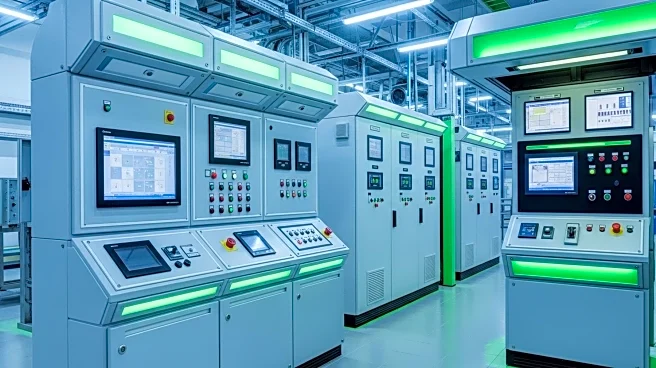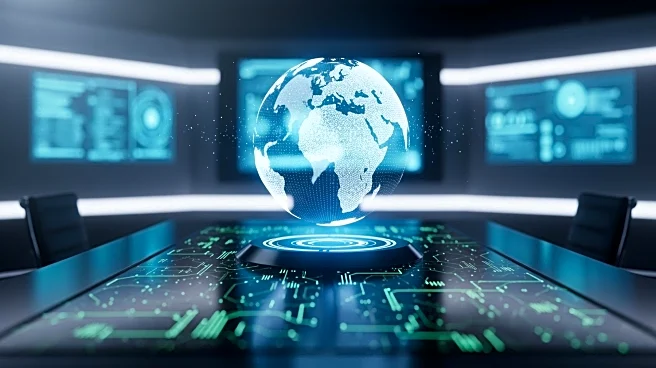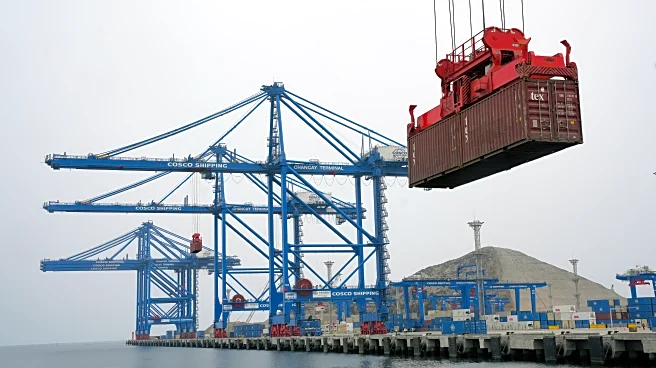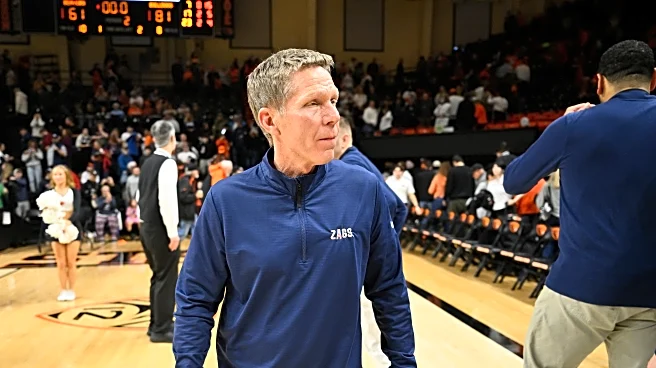What is the story about?
What's Happening?
Schneider Electric is transforming the water industry through the implementation of open, software-defined automation. This approach, which borrows concepts from IT, aims to create a networked ecosystem that addresses customer pain points by enabling fast scaling and adaptable operations. The Universal Automation Organization (UAO), founded in 2021, supports this initiative by promoting 'plug and produce' automation based on open standards. The organization has grown to approximately 130 members, including automation vendors, end users, and technology providers. Schneider Electric's EcoStruxure Automation Expert (EAE) is a key development in this area, allowing automation applications to run across hardware from different vendors without the need for rewriting or reprogramming. The SUEZ Group has adopted EAE in its water plants, facilitating compliance with regulatory changes and improving operational data access, particularly for leak detection.
Why It's Important?
The adoption of open, software-defined automation in the water industry is significant as it addresses several challenges, including cybersecurity threats, workforce issues, and the need for regulatory compliance. By decoupling control logic from proprietary hardware, this approach reduces vendor lock-in and enhances flexibility. The ability to quickly adapt to regulatory changes is crucial for water industry stakeholders, as it ensures compliance and operational efficiency. Furthermore, the initiative supports the industry's need to manage resources effectively and respond to environmental challenges. The collaboration facilitated by the Universal Automation Organization fosters innovation and shared solutions, potentially leading to improved water management practices and technological advancements.
What's Next?
As the water industry continues to face regulatory and environmental challenges, the adoption of open, software-defined automation is likely to expand. Stakeholders may increasingly collaborate through organizations like the UAO to develop shared solutions and standards. The focus on cybersecurity and workforce issues will remain critical, driving further innovation in automation technologies. Companies like Schneider Electric may continue to refine their offerings, enhancing the capabilities of systems like EcoStruxure Automation Expert. The industry may also see increased investment in automation technologies to improve efficiency and compliance, potentially leading to broader adoption across other sectors.
Beyond the Headlines
The shift towards open, software-defined automation in the water industry may have broader implications for industrial automation as a whole. By promoting open standards and interfaces, this approach could lead to a more collaborative and innovative environment across various sectors. The reduction of vendor lock-in may encourage competition and drive technological advancements, benefiting end users with more adaptable and efficient solutions. Additionally, the focus on cybersecurity and workforce issues highlights the need for ongoing investment in these areas, ensuring that automation technologies remain secure and effective in addressing industry challenges.
















